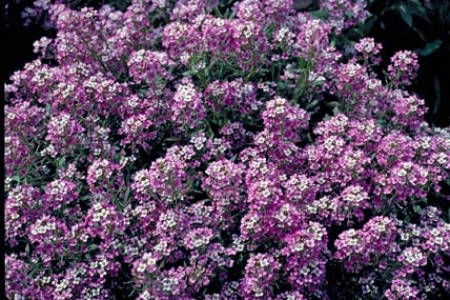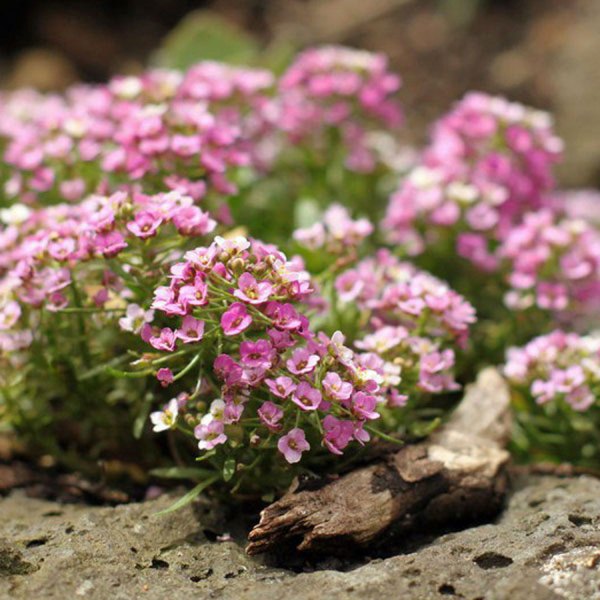Annually Alyssum (Lobularia maritima) rewards little maintenance with masses of profusely formed clusters of small, sweetly scented flowers
Related to how to grow Alyssum: 3 Summer annuals we love
Lobularia maritima ‘Royal Carpet’ 
Alyssum tends to grow to an average size of 15cm in height with a spread of 20 cm. Although single plants don’t have much impact, when planted-en-masse they are eye catchers.
Alyssum has a high drought tolerance, is heat resistant and rarely bothered by pests and diseases. It comes in an array of colours which range from the common white to shades of pink and purple.
As flowers appear a mere 8-9 weeks after sowing alyssum is extremely easy to propagate from seed sown in trays, or directly into the garden bed, making it a cheap and effective flowering option.
If you choose to start it off in seedling trays, plant your seedlings in fertile, well prepared soil with good drainage. Space them 15 cm apart and water them well before removing from the tray. A handful of bone meal and organic seedling food per m2 never also helps. Remember to water them well.
It might appear vulnerable but this faithful bloomer is tough. Feed with a fertiliser low in nitrogen as this promotes flower, rather than foliage, growth. Alyssum will re-bloom for long periods provided spent flowers are removed.
Lobularia maritima ‘Rosie O’Day’
Planting suggestions
- Plant alyssum in rose beds as a living mulch. Its roots are not invasive and won’t damage those of the rose. Living mulch will reduce moisture loss, provide competition for weeds and improve soil structure. Furthermore, alyssum attracts beneficial insects which prey on common rose pests such as aphids.
- Alyssum makes a spectacular show when grown in hanging baskets and containers and is the perfect patio and pool area plant.
- Plant it between stepping stones and pathways for a really unique walkway and use it in rock gardens, edging and as a bedding annual.
Did you know?
Alyssum is native to the Mediterranean area and is also indigenous to France. It commonly grows on sandy beaches and dunes and the name of the species maritima refers to its preferred coastal habitat. The genus name Lobularia derives from the Greek word meaning “small pod”, referring to the shape of the fruits.

Lobularia maritima
Well known varieties include
- ‘Snow crystals’ (Pure white flowers)
- ‘Rosie O’Day’ (Pink flowers)
- ‘Royal Carpet’ (violet purple flowers)

.jpg)
